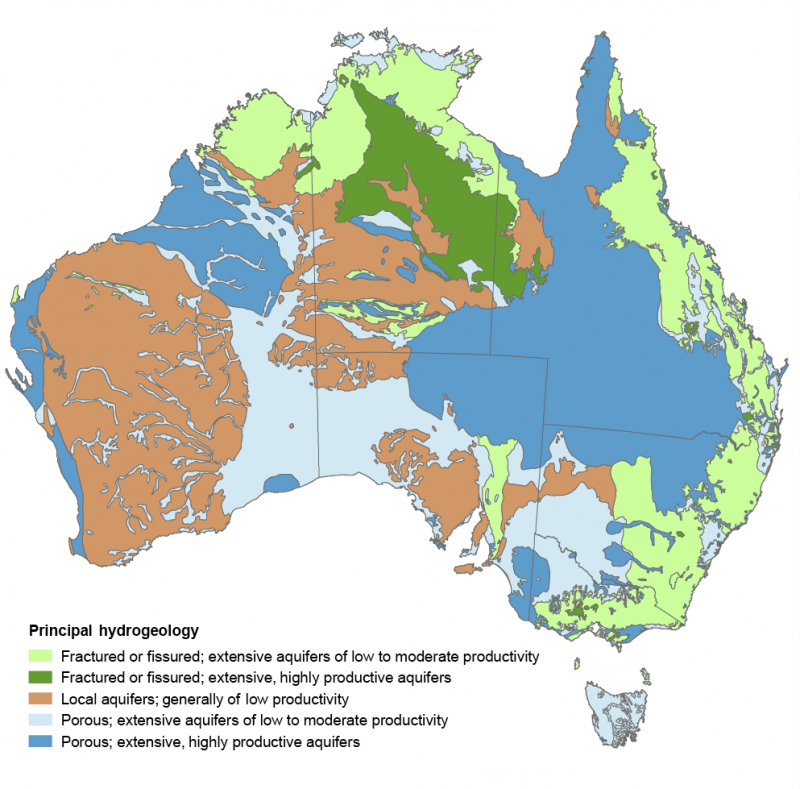The Management and Use of Ancient Water in Northern Australia
Published on by Water Network Research, Official research team of The Water Network in Academic
Northern Australia contains three major subterranean water systems, with one each in Queensland, Western Australia and the Northern Territory. Each of these systems is unique.
Summary

Source: Future Directions
In northern Australia, three major hydrogeological systems are listed as being highly productive: the Canning Basin in Western Australia, the Great Artesian Basin in Queensland and the Daly Basin in the Northern Territory. Each of these systems is unique and, as such, needs to be managed in ways that consider local aquifer characteristics while ensuring compliance with state and national regulatory frameworks.
The National Water Initiative (NWI) of 2004 requires that States compile water allocation plans which, in turn, require sufficient levels of understanding of these aquifers. In some cases, such as in the Pilbara region of Western Australia, the water allocation plan does not take into account all forms of water extraction while, in other cases, the net flow of water from aquifers is well understood but is not sustainable over the long term.
The characterisation of aquifers, their interconnectedness, and how they affect surface water resources and Groundwater Dependent Ecosystems (GDEs) is a major step in gauging sustainability and scope for development. Ultimately, however, the viability of an aquifer depends on how frequently it can be recharged – and there is evidence that significant natural recharge events for some aquifers only occur on a timescale of millennia.
In the following analysis, examples will be given from just some of the major users of water from aquifers in northern Australia to demonstrate different levels of knowledge around aquifers and management practices.
Read full article: Future Directions
Media
Taxonomy
- Water Framework Directive
- Water Resource Management
- Groundwater
- Water Resources
- Water Resource Management
- Groundwater Pollution
- Groundwater Mapping
- Groundwater Quality & Quantity